The Best Chance of Seeing a White Lion
The best chance of seeing a white lion is in Motswari, a small, private game reserve adjacent to the Kruger in the northern section of the Timbavati.
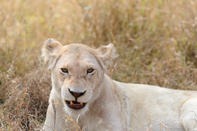
The two most promising white lions recently left their pride and are nomadic, ranging across vast distances, sometimes deep into the Kruger and onto private land, so getting your timing right is crucial. The Motswari team suggests you remain on twenty-four-hour standby, and if the lions make a kill or look settled near the lodge, you will jump on a plane and fly to the nearest town, Hoedspruit. In theory, you could be there within hours.
Camouflage is Crucial
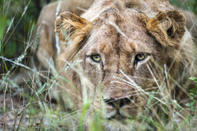
In Zoologist Chris McBride’s book, The White Lions of Timbavati, he describes how lions need their tawny camouflage to operate in the khaki-coloured world of the African veld.
Their colour is all the more crucial as most of their prey can run faster than them, so the capacity for ambush is all-important. Being snow white in this environment is not ideal. McBride notes how some zoologists believe that in the past, when lions still inhabited many parts of the world, there was a greater colour variation than seen today.
White as Polar Bears
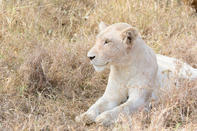
Zoologist Chris McBride initially encountered white cubs while studying a Timbavati pride for his Master’s degree in Wildlife Management. He describes his first proper sighting in October 1975: ‘From a thicket emerged a tiny tawny form. Then two more furry shapes – white as polar bears, but unmistakably lions.
It was the first time I had seen them in the open … And there they all stood – Vela and the white lions of Timbavati – in the secure patch of Lowveld grass, listening as their mother called out to them.’
No Guarantees
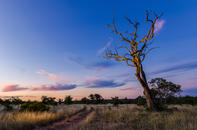
When trying to spot white lions, weeks can drag into months as the cats make only fleeting visits to Motswari, remaining on the move. “On one occasion, the lions did hang around for a day or two, but the lodge was full and could not accommodate me. It was deeply frustrating.
After three months, the Motswari team suggested I come anyway and try my luck, as the cats kept ‘passing through’, and there’d be no guarantees in the foreseeable future.” - Justin Fox Arriving in the Lowveld in the middle of summer, you can expect to step from the aircraft into a wall of heat.
The veld is green and lush, with pools of standing water everywhere, allowing game and predators to roam far and wide with no need to find waterholes. It is an hour’s drive from Hoedspruit’s Eastgate Airport to Motswari through the steaming midday bush.
Teeming With Game
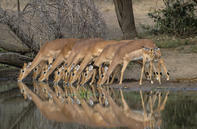
The Making of a White One
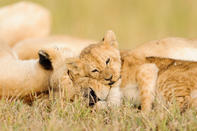
Here Justin Fox tells of his experience looking for the elusive white lions in the Timbavati Game Reserve: “We set off at first light. The guides, Shadrack and Tiyani, had also heard the roaring in the night, and we headed in that general direction.
It was a still, luminous dawn, cool and magical, with tendrils of mist lingering among the trees. Back and forth we went. Hours passed. The day grew steamy. Our spirits flagged. I began clock-watching, as I needed to be at the airport by noon. Shadrack allowed the vehicle to glide to a halt without touching the brake and switched off the engine.
‘They’re not exactly white, but they’re probably in the process of making a white one,’ he said in a stage whisper. About 20 m to our left lay a pair of lions taking a break between bouts of mating. If their coupling was successful, a litter would be born in three months. One of the cubs might well be white. This union between two cats carrying the white gene was the closest I was going to get to Timbavati’s white lions.”
By Justin Fox White rhino are the second largest land mammals on earth and as such enjoy a position amongst the ‘Big 5’ – historically those animals...
White rhino are the second largest land mammals on earth and as such enjoy a position amongst the ‘Big 5’ – historically those animals... Timbavati Game Reserve covers approximately 53,000 hectares of unspoiled South African nature. It is located on the western edge of the Krug...
Timbavati Game Reserve covers approximately 53,000 hectares of unspoiled South African nature. It is located on the western edge of the Krug...